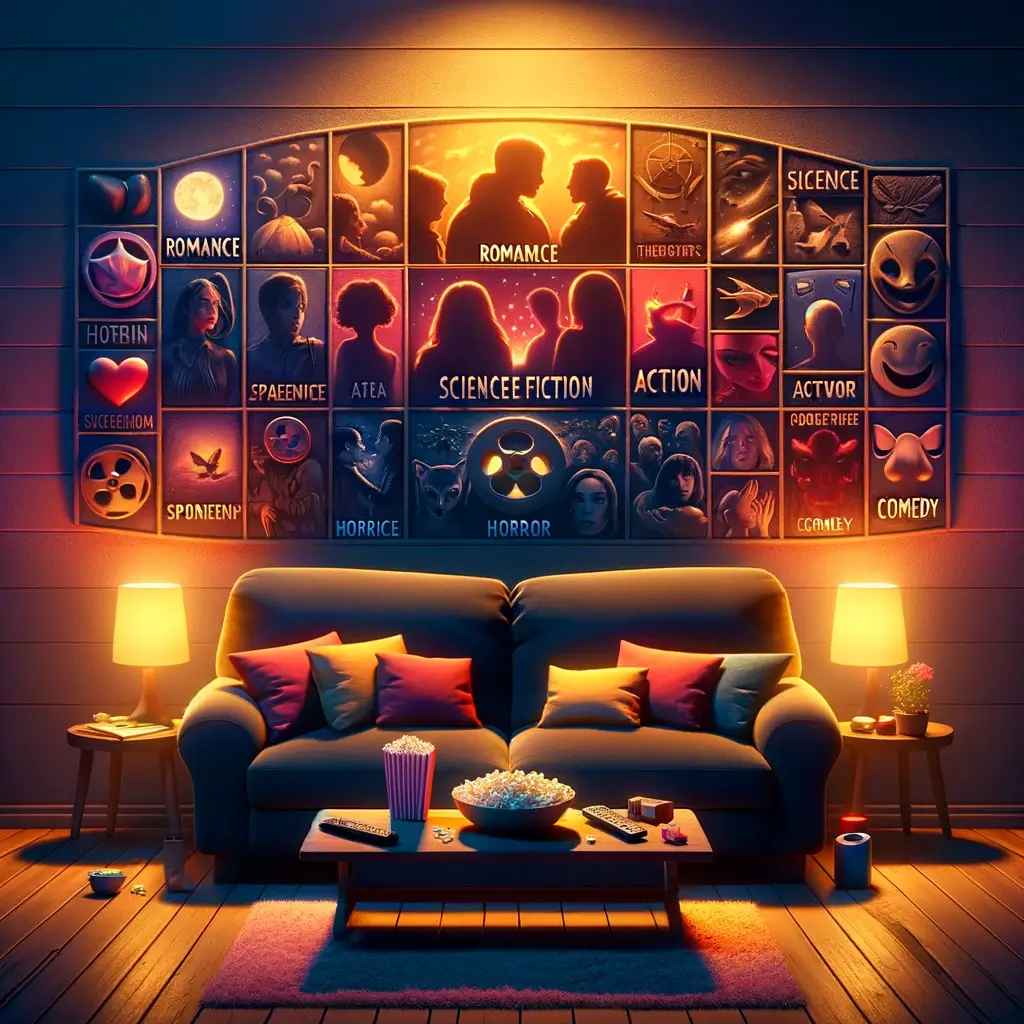
What Your Movie Preferences Reveal About Your Inner Self
The movies we love do more than entertain; they offer a window into our souls, revealing deep insights into our fears, desires, and the very essence of who we are. Just as a favourite book can say a lot about a person, so too can their movie preferences. This article delves into the psychological underpinnings of our cinematic choices and what they say about our inner selves.
Decoding Movie Genres
Comedy: The Optimists and Social Butterflies
Fans of comedy often have a positive outlook on life and value social connections. Their preference for laughter and light-heartedness reflects an underlying resilience and an ability to find joy even in challenging circumstances.
Drama: The Empaths and Reflective Souls
Lovers of drama are typically deep thinkers and empaths, drawn to the complex tapestry of human emotions. They appreciate nuanced storytelling that explores the human condition, suggesting a strong capacity for empathy and understanding.
Action and Adventure: The Thrill-Seekers and Explorers
Those who gravitate towards action and adventure films are often thrill-seekers at heart, craving excitement and stimulation. This preference indicates a dynamic personality with a zest for life and a penchant for overcoming challenges.
Horror: The Fearless and Curious Minds
Horror enthusiasts may seem like they love to be scared, but their preference often points to a deeper fascination with the unknown and a desire to confront fears head-on. It reveals a curious nature that is not afraid to explore the darker sides of life and human psychology.
Science Fiction and Fantasy: The Dreamers and Visionaries
Fans of sci-fi and fantasy are typically forward-thinking and imaginative, drawn to stories that break the bounds of reality. This preference suggests an open mind, a love for innovation, and a deep-seated belief in the possibility of a better future.
Movies as Mirrors of Our Desires
Our favorite films often reflect our deepest desires, fears, and dreams. They can serve as a form of escapism, allowing us to live vicariously through characters and stories that resonate with our aspirations or provide a contrast to our daily lives.
Cinematic Choices and Personality Insights
Research suggests that our movie preferences are closely linked to our personality traits, such as openness, conscientiousness, extraversion, agreeableness, and neuroticism. By examining the types of films we are drawn to, we can gain insights into these underlying personality dimensions.
Conclusion
In the grand cinema of life, our movie preferences serve as both entertainment and introspection. They reveal the contours of our inner selves, offering clues to our desires, fears, and dreams. By understanding the psychological underpinnings of our cinematic choices, we can unlock a deeper understanding of who we are and how we view the world.
FAQs
1. Can my movie preferences predict my behavior in real life?
While movie preferences can offer insights into your personality, they're not definitive predictors of behavior. They reflect underlying traits and tendencies rather than specific actions or decisions. However, understanding your cinematic tastes can provide clues to your values, fears, and desires.
2. How do changes in my movie preferences over time reflect my personal growth?
Changes in movie preferences can mirror changes in your life, perspectives, and personal growth. As you encounter new experiences and evolve, your tastes in movies might shift to reflect new interests, understandings, and aspects of your identity.
3. Are there any psychological studies linking movie preferences to specific personality traits?
Yes, numerous psychological studies have explored the connection between movie preferences and personality traits. Many of these studies utilize frameworks like the Big Five personality traits to examine how preferences for certain genres correlate with aspects of a person's character, such as openness to experience, agreeableness, or extraversion.
4. How can I use my understanding of movie preferences to improve my relationships?
Sharing and discussing movies can be a powerful way to connect with others on a deeper level. By understanding your own and others' movie preferences, you can gain insights into each other's personalities, leading to richer conversations and a deeper understanding of each other's inner worlds. It's a way to bond over shared tastes or explore differences in a meaningful way.
